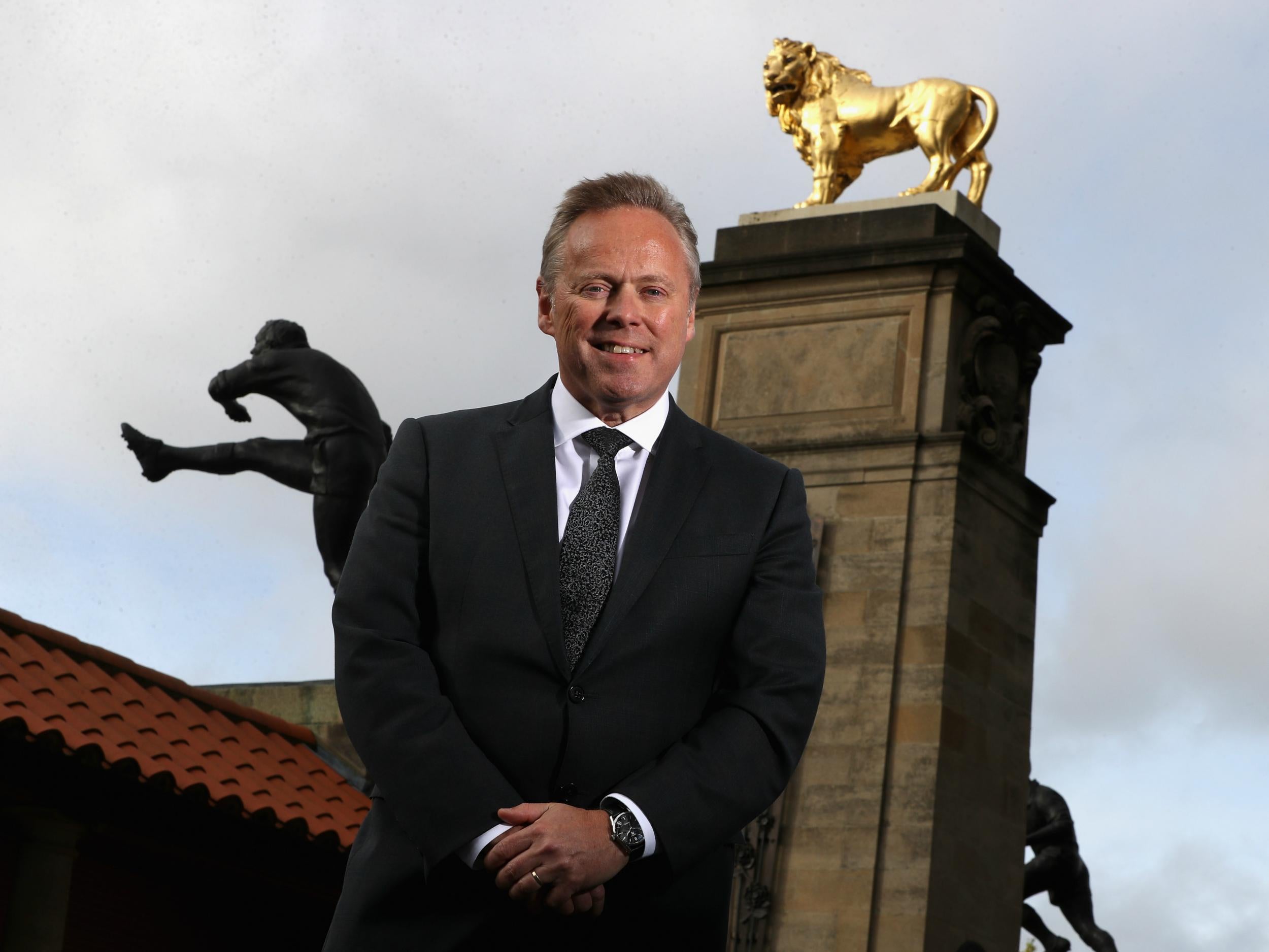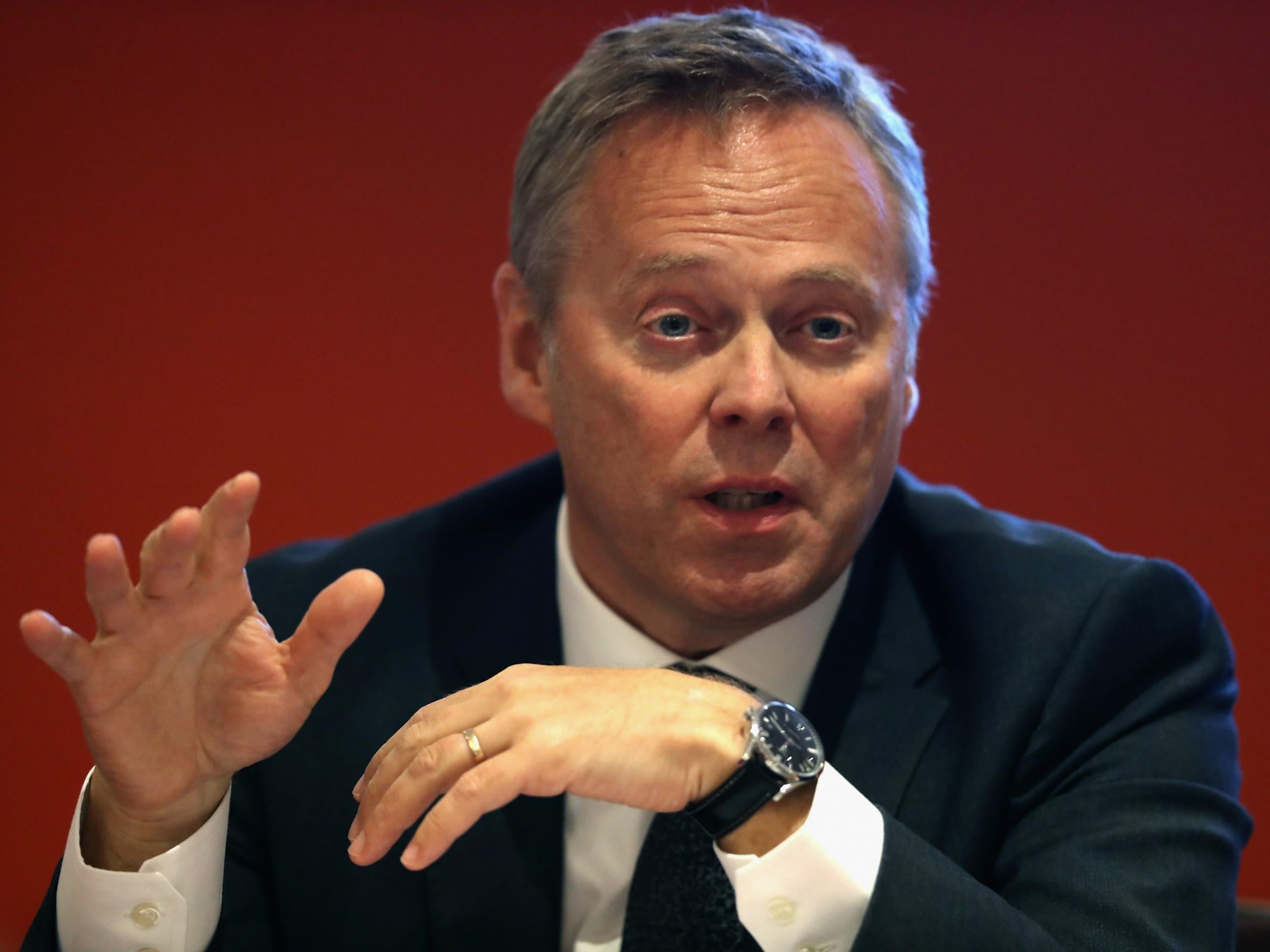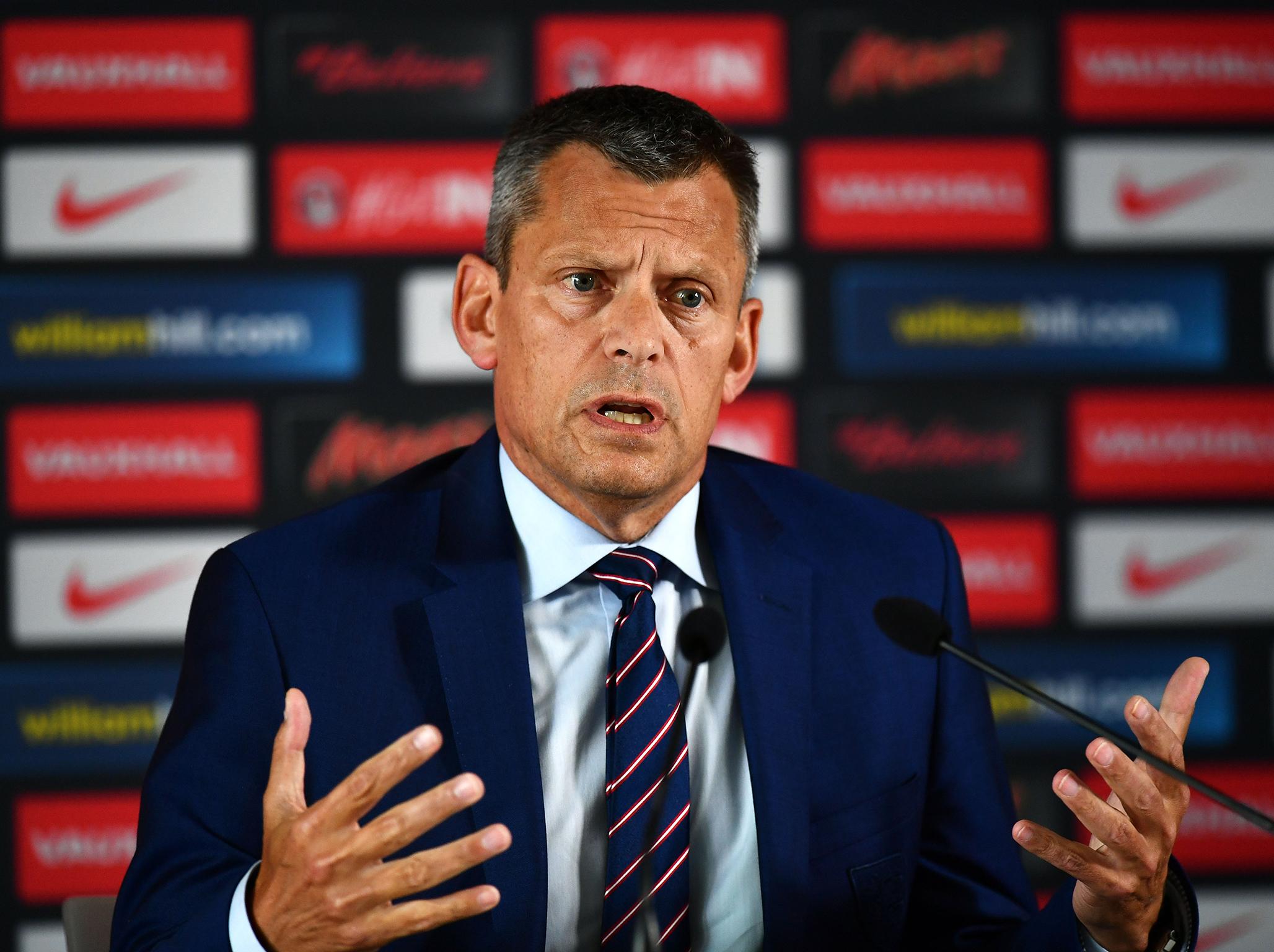RFU vow to make rugby 'England's strongest sport' to take full advantage of current FA crisis
Chief executive Steve Brown has unveiled a new four-year strategic plan to make rugby union the best governed and most successful sport in the country

Your support helps us to tell the story
From reproductive rights to climate change to Big Tech, The Independent is on the ground when the story is developing. Whether it's investigating the financials of Elon Musk's pro-Trump PAC or producing our latest documentary, 'The A Word', which shines a light on the American women fighting for reproductive rights, we know how important it is to parse out the facts from the messaging.
At such a critical moment in US history, we need reporters on the ground. Your donation allows us to keep sending journalists to speak to both sides of the story.
The Independent is trusted by Americans across the entire political spectrum. And unlike many other quality news outlets, we choose not to lock Americans out of our reporting and analysis with paywalls. We believe quality journalism should be available to everyone, paid for by those who can afford it.
Your support makes all the difference.The Rugby Football Union has announced ambitious plans to become “England’s strongest sport” in terms of governance, regulation and success, just weeks after the country’s football governing body descended into one of its biggest and most embarrassing scandals.
In what appears to be a power move to try and lure resources into rugby union in England, the RFU chief executive Steve Brown unveiled their new four-year strategic plan that will see £443m invested into the game – a significant increase on the £330m that was put into it since 2012.
New plans centre around protecting the game across the country at all levels, increasing the engagement using new technology schemes, growing participation numbers while keeping players through the transitional years surrounding the end of youth rugby and the start of university and, ultimately, bringing unprecedented success for the English game with targets set of winning the next World Cup in both the men’s and women’s game as well as claiming medals at both the Rugby World Cup 7s and the 2020 Olympics.
With the most recent Sport England figures putting rugby union second to football in team sport participation numbers, this could appear to be a direct threat towards the round-ball game that currently has more than 1.5m players per week. But Brown stressed that isn’t the case, and instead it will based on a culmination of poaching players from other team sports, providing a strong governing body with transparency in how it runs and catering for the game like never before, whether it be under-7s mini-rugby on a Sunday morning or a possible World Cup final in 2019.
“Our definition of strongest isn’t necessarily biggest, that may be some way off for us obviously, but you don’t have to be big to be strong right?” Brown said.
“So that means for us setting a standard and being as good as we can be - and the best around the country – in the way the game is governed and run and the organisation that is governed and run, and setting some standards there that perhaps are significant and a step change for us and certainly for other organisations as well. I’d describe it as setting standards in the way we go about the business of running rugby.”
Brown’s ambitious new plan for the RFU, which looks to build on the work done to salvage the reputation of English rugby by his predecessor Ian Ritchie since the 2011 Rugby World Cup debacle, comes at a time when the English Football Association faces one of its biggest crises in its history.

The FA’s chief executive Martin Glenn, chairman Greg Clarke and technical director Dan Ashworth have faced huge criticism over the handling of England international Eni Aluko’s accusations of bullying and racism by her former international manager Mark Sampson, who was sacked last month for an unrelated incident earlier in his career. Since his dismissal, the FA have apologised to Aluko after an independent investigation found Sampson to have used racially abusive language towards her and teammate Lianne Sanderson.
The incident led to the Department for Digital, Culture, Media and Sport calling the three FA officials to give evidence on the handling of the situation – something that brought even further criticism from the likes of sports minister Tracey Crouch after Clarke referred to Aluko’s case as “fluff” during the parliamentary hearing.
But after taking control of one of the most high-profile governing bodies in the world, Brown is confident that the RFU already have the right measures in place to ensure a similar scandal doesn’t engulf the oval-ball game, though he did confirm that the FA’s embarrassing episode has triggered a period of review among the RFU in order to retain full transparency.
“We’ve got thousands of people involved in this sport across the country,” Brown added. “I guess any sport has a risk of an issue of that nature. The bit that we’re working at and making sure that we have is that as an organisation we’re in a place that we wouldn’t allow that to happen, so we’re in the best possible position that we could be – and that comes with a whole host of things.
“I don’t know the specifics and the background completely to the FA situation, but from the way we look at it from our perspective is it’s about being transparent, it’s about being open, clear, making good quality decisions and keep checking and challenging ourselves to make sure that we keep up to those high standards that we set, and I think if we carry on our lives like that, we should find ourselves always on the right side of a tricky position.

“We have well established policies and a publicised approach to whistleblowing for example, but in that spirit of continuously learning and improving and observing what can go wrong sometimes, we’re constantly looking at it. We’re having a look now to make sure that we’ve got that right, to make sure that it’s right for the elite end of the game as well to make sure that there is the right knowledge and understanding of what we have in place currently or if we need to do more.
“It’s critical to good governance of a sport to look at those things and make sure they work properly.”
With such big plans on the horizon for English rugby, the game already appears to be in a healthy position from which to build from and while it may never topple football on these shores, Brown’s four-year plan could well put the game into a position of strength that it has not seen since the sport was first created.
Join our commenting forum
Join thought-provoking conversations, follow other Independent readers and see their replies
Comments